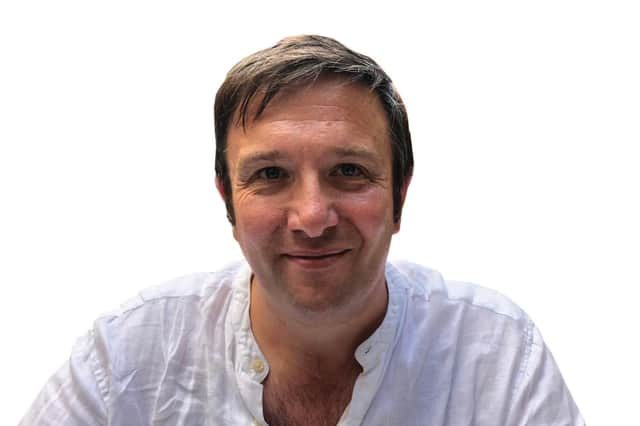Shaun Milne: Greta Thunberg’s observation that Scotland is no world leader in climate change is a wake-up call


Perhaps it is harsh – after all, Scotland is home to and champion of some of the planet’s leading technologies in wave power, the biggest windfarms in Europe, sustainable living, and we will of course stage COP26 this year.
The Scottish Government has just made political history in appointing two Green politicians, Lorna Slater and Patrick Harvie, as ministers with portfolios focused on many of the things Thunberg and others campaign over.
Advertisement
Hide AdAdvertisement
Hide AdSo, at first glance, it could be argued that these are uniquely progressive moves which put Scotland into a league of its own. Innovative, inclusive, pioneering.
But actually…Thunberg is right.
The bar is set too low. Far too low. Being better than the next worst thing is no success. Scotland, like so many other of the wealthier nations, has not led the world, instead it has helped in facilitating its problems from the off.
As a country, it was Scotland and its UK paymasters who drove North Sea oil rush and squandered the profits. We did not, like Norway, for example, invest in social care and a renewable energy grid.
Instead, we exported oil and gas technology around the world so others could exacerbate a problem that led to scientists in the 1970s who predicted its folly being dismissed as cranks and troublemakers, eccentrics.
And we continue to do so. With Cambo, and other such fossil fuel projects, we are not even trying to rehabilitate ourselves.
We have large swathes of forests covering the country as part of a business worth billions. But, because in part of the reluctance of previous gatekeepers, they hold little value in terms of biodiversity or ability to sequester carbon.
Some will try and argue the opposite, citing how trees grow faster and do have some residual benefit. But surely it is inescapable to conclude that leaving them in the ground, as part of a mixed species of native forestry, has longer-term benefits?
Our seas are filthy, over-fished by some of the biggest trawlers in the world moored around the Aberdeenshire coast. Their smaller, potentially more sustainable cousins, the victim of political Monopoly.
Advertisement
Hide AdAdvertisement
Hide AdCurrently, some of our biggest public building contracts remain emissions-enabling roads, while our buses and trains – both viable and cleaner alternatives to driving –are priced so expensively, and at times so inaccessible, that it is cheaper not to use them.
And while those lucky enough to live in large, older city-centre homes bemoan the potential cost of home energy improvements, what would those across the tracks do for an affordable home, built to adequate standards?
Words like “extreme” and “danger” should be directed not at individuals, but at the threat of climate change. All those barking about economic vandalism or describing politicians and activists they didn’t vote for as eco-zealots are most likely part of the same cohort who are responsible for the emergency we are in.
The same self-absorbed navel-gazers say they care about the environment but do nothing about it. Why should they? They have their pensions, their big fancy homes, handsome salaries and are of an age when climate breakdown won’t affect them directly. And if it did, they’d simply push their way onto the lifeboat and leave the kids behind. “Selfish” is the word.
Which is where I think Greta Thunberg is challenging us all – challenging us to be the leaders we could become.
We are only at the start of a journey to become a sustainable nation, years behind where we should be but finally getting the point. COP26 is a chance to put that ambition under a microscope, to make sure we get it right.
Scotland has voiced its intent by breaking with convention in the appointment of the two Scottish Greens as junior ministers. The risk of party calamity and of losing political currency will have been weighed up against the risk of doing nothing.
In spite of all the right-wing naysayers howling in the background, despite the legitimate concerns of the Greta Thunbergs of the world, it was an extraordinary act of bravery by Nicola Sturgeon to put climate first.
Or, to put it another way, a sign of leadership.
Shaun Milne is host of the Sustainable Scotland podcast and CEO of Skog Media Associates.